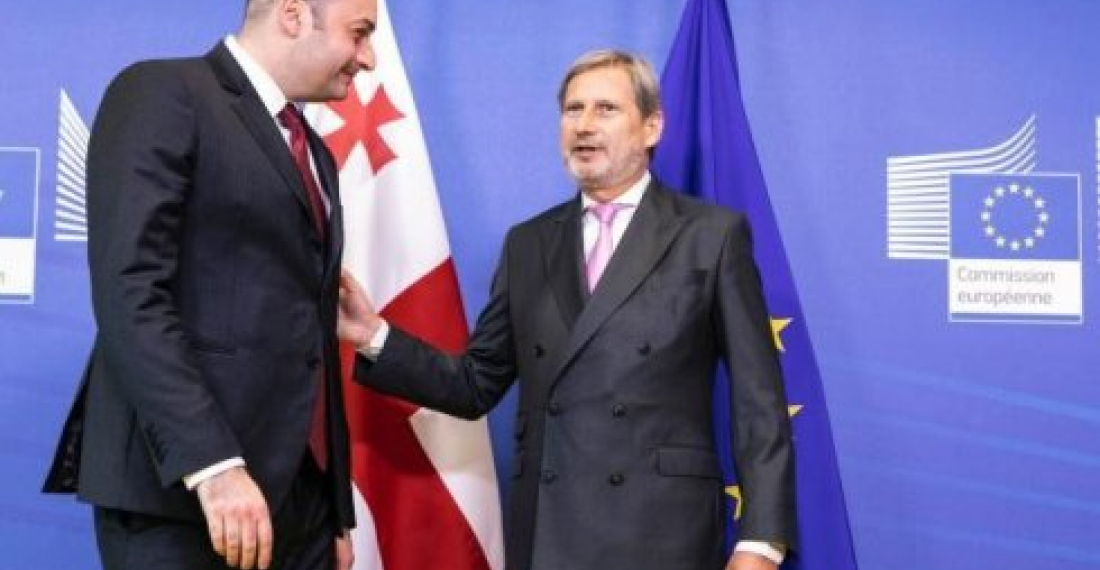Georgia has once more received assurances of support for its reforms and for its European and Euro-atlantic asspirations. Georgia's new prime minister, Mamuka Bakhtadze, was in Brussels this week for meetings with EU and NATO leaders. Summarising the results of his visit to Brussels, Bakhtadze told Georgian media following his meeting with the EU Commissioner for enlargement and neighbourhood policy, Johannes Hahn thast the meeting was very productive and Georgia had the support of its European friends.
He added:
"We discussed the implementation of our commitments assumed under the Deep and Comprehensive Free Trade Agreement (DCFTA) which is progressing rapidly in Georgia. We had series of very important meetings yesterday with Mr. Donald Tusk, the President of the European Council, and other partners. Once again, we heard princiopled support for Georgia on its way to EU integration. Supportive messages have been reiterated. At the same time, we gained solid support towards economic reforms that will be implemented in the country.
Special focus has been made on the inclusive economic growth, e.i. a type of economic growth that will lead to a more equitable distribution of economic wealth among the population of the country. There were other very important meetings at the NATO Headquarters, including a meeting with a Secretary General. Once again a totally supportive assurance has been given towards our territorial integrity and full support on our quest to Euro-Atlantic integration and full encouragement for the reforms intended by us for the increased, empowered and strengthened defense capacity of the country advancing to the NATO standards."
On his part Commissioner Hahn tweeted:
Happy to welcome @BakhtadzeMamuka in #Brussels and to congratulate him on his appointment as Prime Minister of #Georgia. Confirmed #EU's commitment to further deepen our close partnership on the basis of the ambitious #AssociationAgreement. 1/3 pic.twitter.com/okrn9Zhh6m
— Johannes Hahn (@JHahnEU) July 20, 2018
source: commonspace.eu






